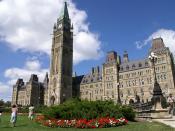Keynesian economics is the idea that government spending can be used to stabilize the economy, and stresses the importance of moderate economic growth. According to Keynes, during prosperity governments should reduce spending to avoid inflation and to slow down consumer spending in order to maintain stable growth. During times of prosperity Keynesian theory states that governments should pay off debt, reducing the amount of money lost to interest payments. In Keynesian theory debt from fiscal spending is only justifiable when the economy is not doing well in order to provide help, and that in turn decreases disparity and stimulates the economy. Keynesian economies are often known as demand side economics, and tend to be plagued by overspending and debt. Fear of economic crisis can reduce consumer confidence, stifle investments and slow the economy.
On the other side of the spectrum is supply side economics, an idea based on the theory that freely operating private markets will trickle down wealth to the lower end of the economic population by creating jobs.
These economies had unrestricted markets which usually controlled inflation. Lower taxes increased investment and monetarism is practiced to stabilize the money supply. These lower taxes can increase disparity and decrease government funds. Related to supply side economics is neoconservatism which is when the government tends to overemphasize military spending, and is willing to go into debt to spend money on defense that doesn't stimulate the economy.
Upon analysis this remains a complex issue, however debt should not be justified as a result of fiscal spending during prosperity. There are times though when debt can be justified during times of economic crisis.
Fiscal responsibility during prosperity can balance a nations budget and help pay off the debt through surpluses. President Bill Clinton corrected the right wing weakness in the American economy...


